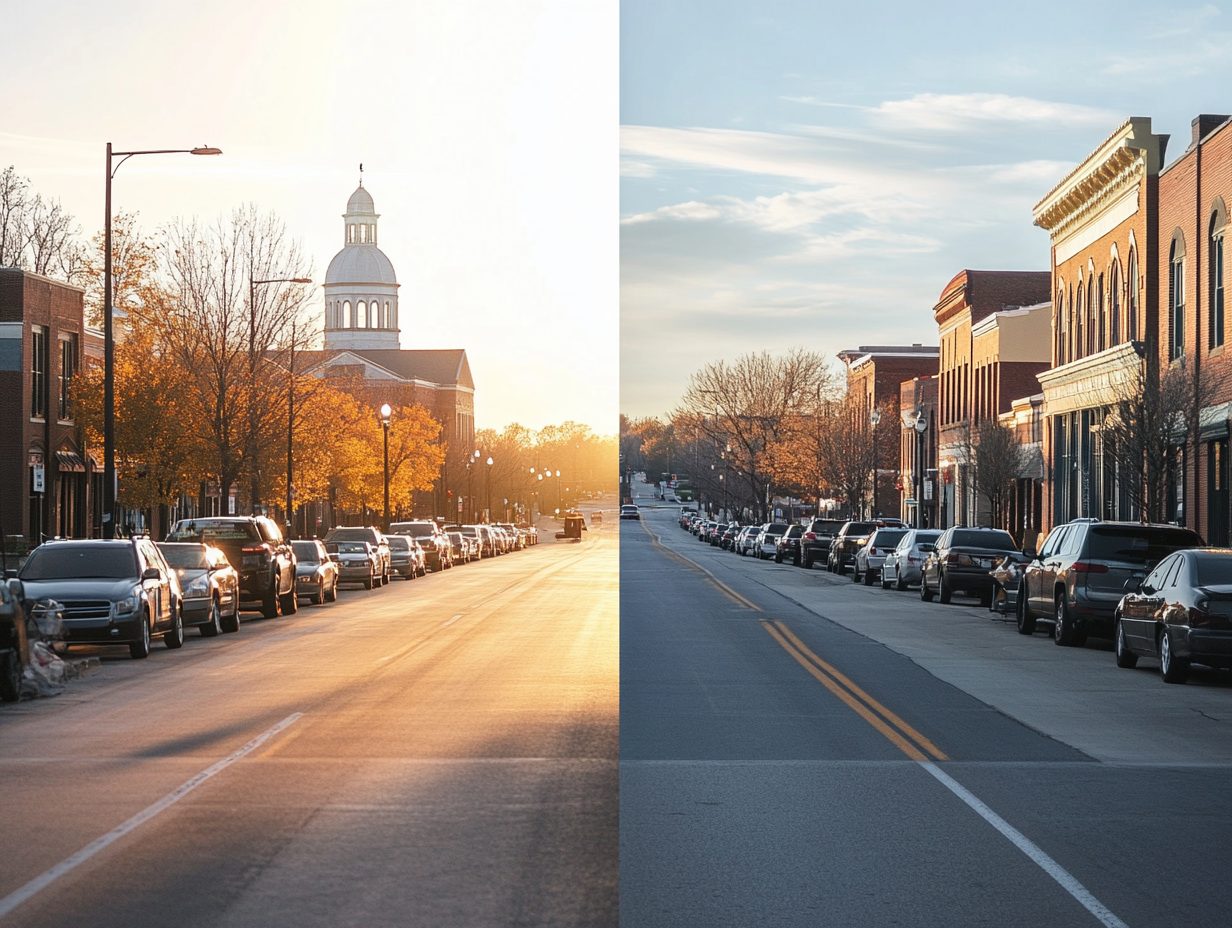"*" indicates required fields


Ashland, Missouri—population hovering near 5,000—remains a smallish town caught between farmland roots and the pull of nearby Columbia’s city sprawl. Real estate? Prices have been creeping up, but you might still snag a modest home under $300k if you’re lucky. People keep moving in because it’s close to bigger job centers while still holding that “rural quiet.” Meanwhile, Columbia—with around 125,000 folks—anchors the region: it’s got the University of Missouri, a big medical scene, and a growing tech presence. Home prices can range widely; older bungalows near downtown get snapped up fast, while suburban developments easily breach the mid-$300k range. Both towns are seeing more newcomers, drawn by that “Missouri is cheaper than the coasts” promise. If you’re torn between cozy Ashland and the energy of Columbia, let’s crack it open.
Overall, neither place is going to scorch your wallet like a coastal city, but there’s a gap. Ashland historically has lower home prices—some older ranches or new builds at prices that might make a Californian do a double-take. Groceries and daily expenses are typical for rural-ish Missouri—relatively chill. But remember, you might commute to Columbia or Jefferson City for bigger stores or job hubs, so factor in gas.
Columbia, bigger and more diverse, can have cheaper groceries (bulk discount from bigger retail?), but housing’s a different beast. Near Mizzou or downtown, you can pay a premium. Newer suburban areas might feel more “middle-of-the-road.” Utilities can be up there thanks to that Midwest weather roller coaster (AC all summer, heat all winter). In short, Ashland might save you on housing, but Columbia gives you more range—just watch out for those neighborhoods near campus that can spike your rent or property taxes.
Ashland itself doesn’t host major corporations. It’s more bedroom community—people drive up or down Highway 63 to get to work in Columbia or Jefferson City. If you work remote or run your own small business, the small-town vibe might be fine, but big job opportunities are typically out of town. Some local shops or services exist, but don’t expect a corporate park.
Columbia benefits from Mizzou, the university hospital system, and a rising tech scene. Healthcare, education, plus some state government spillover—these are big draws. If you’re chasing a stable job, Columbia’s more likely to deliver. There’s also a decent startup vibe around downtown, coworking spaces, etc. Downside? More competition, and traffic can snarl at times (though nothing like major metros). Ultimately, if you want local job variety, Columbia’s your bet. If a quiet homestead with a commute is fine, Ashland might still suit you.
In summary: If you want immediate access to bars, restaurants, events, you’ll lean Columbia. If a quiet after-dinner walk around the block is enough nightlife for you, Ashland is your calm corner—just be prepared to drive for bigger excitements.
Ashland is served by the Southern Boone County School District—smaller, known for a close-knit environment, decent test scores, and that small-town high school football vibe. People rave about the teacher-to-student ratio and community support. For advanced programs, you might have fewer options than a bigger district, but some families love that personal touch.
Columbia has the Columbia Public Schools, one of the state’s larger districts. Quality can vary by neighborhood—some high schools rank well in the region, while others might struggle. There’s a boatload of private and charter schools around, too, if you want to pay for smaller class sizes or specialized curricula. Then there’s Mizzou—the University of Missouri, a research-heavy campus fueling the city’s intellectual vibe. Also, Columbia College and Stephens College are in town, offering diverse higher ed options. Ashland folks who want advanced classes or specialized programs might end up commuting to or tapping into Columbia’s resources, so keep that in mind if you have kids in secondary or post-secondary transitions.
Ashland:
Columbia:
Ultimately, Ashland is for people who want that quieter life but with the ability to hop onto Highway 63 and hit up big-box stores or Mizzou football when they feel like it. Columbia suits those who want immediate access to cultural events, a range of dining, and a sense of urban hustle (by Missouri standards anyway).
So, Ashland vs. Columbia: one’s your classic small-town neighbor of the big city, where new homes keep popping up but the farmland vibe lingers; the other’s the region’s hub, fueled by Mizzou, breweries, music festivals, and a steady population churn. Both share that central Missouri climate (get ready for hot, humid summers and unpredictable winters), but differ in daily pace, housing markets, and nightlife. If you crave simplicity and don’t mind driving to the city for more than the basics, Ashland might satisfy. If you want the city swirl, job variety, and a college-town pulse, Columbia’s your stage. Either way, you’re in mid-MO territory—enjoy the sweet tea, rolling hills, and that genuine neighborly spirit.
"*" indicates required fields
"*" indicates required fields
